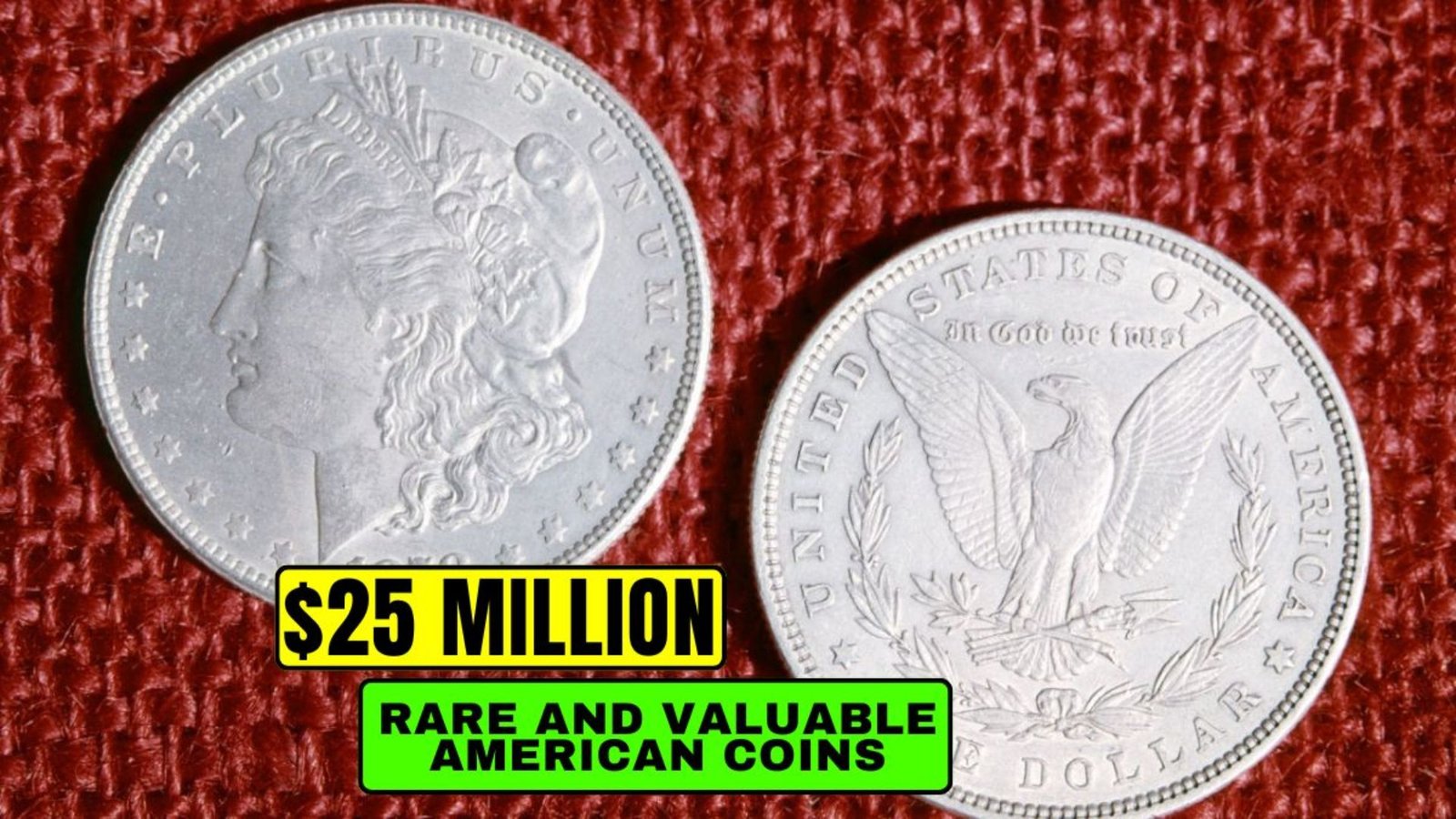Imagine digging through your grandma’s old jar of loose change and pulling out a shiny quarter that could fund your dream vacation. Now, picture coins so rare they’re fetching prices in the tens of millions. That’s the thrilling world of rare and valuable American coins.
Whether you’re a numismatic newbie or a seasoned hobbyist, this post dives into the stories behind these metallic marvels, spotlighting the beloved Bicentennial Quarter. Stick around to uncover history, values, and tips that’ll have you eyeing your pocket change differently.
Introduction to Rare American Coins
Rare American coins aren’t just metal discs—they’re time capsules of our nation’s story. From early silver dollars to gold eagles, these pieces blend artistry, scarcity, and history. Numismatics, the study and collection of coins, turns pocket change into potential treasures. Today, with auction houses buzzing, even everyday folks can spot valuable finds among American coins.
The Rich History of Iconic U.S. Coins
American coin history kicks off in the late 1700s, post-Revolution. The U.S. Mint struck its first silver dollar in 1794, symbolizing independence. Fast-forward to the 1930s: The Double Eagle gold coin emerged amid the Great Depression, only to be melted down—making survivors ultra-rare. The 1976 Bicentennial Quarter? It celebrated America’s 200th birthday with dual designs of a drummer boy and colonial flag, minted in massive numbers but hiding gems in errors and proofs.
Why These Coins Sparkle in Value Today
Scarcity drives demand in the rare coin market. Economic shifts, like gold standard changes, created rarities worth fortunes. Investors love them as hedges against inflation—stable assets with historical charm. For hobbyists, owning a slice of American history feels priceless. Plus, pop culture nods, like in Pawn Stars episodes, keep numismatic buzz alive.
Spotlight: The Bicentennial Quarter
Ah, the Bicentennial Quarter—the 1976 star of American coins. Featuring John Adams on one side? No, wait—reverse shows a victory torch and Olympics nod, tying to the era’s spirit. Most circulated ones are worth face value, but silver proofs and error strikes? They command hundreds to thousands. It’s an accessible entry to rare coins, blending nostalgia with real numismatic potential.
| Bicentennial Quarter Type | Condition | Estimated Value |
|---|---|---|
| Clad Business Strike (P or D Mint) | Circulated | $0.25–$5 |
| Silver Proof (S Mint) | PR-69 Deep Cameo | $15–$50 |
| Type 2 Proof (Clear “S”) | PR-70 | $100–$500 |
| Off-Center Strike Error | MS-65 | $200–$1,000 |
| High-Grade Silver (MS-68) | Gem Uncirculated | $5,000–$20,000 |
This table shows how condition amps up value—perfect for spotting rare coin opportunities in your stash.
How to Dive into Numismatics
Ready to join the fun? Start simple: Sort your change for Bicentennial Quarters with crisp designs. Visit coin shows or apps like PCGS for grading. Buy certified slabs for peace of mind. Benefits? It’s relaxing, educational, and could pay off big. Share finds on forums—community vibes make collecting addictive.
Record-Breaking Sales and Stats
No single rare American coin has topped $25 million yet, but collections have smashed that mark. One 2015 trove of 128 early U.S. pieces fetched $25.3 million. The king? The 1933 Double Eagle, sold for $18.9 million in 2021—the priciest single U.S. coin ever. Stats show the market’s hot: U.S. rare coin sales hit $500 million annually.
| Top Rare American Coins Sold | Coin Name | Sale Price | Year Sold |
|---|---|---|---|
| 1933 Double Eagle | Gold $20 | $18.9M | 2021 |
| 1794 Flowing Hair Dollar | Silver $1 | $12M | 2013 |
| 1804 Bust Dollar (Class I) | Silver $1 | $3.36M | 2020 |
| 1913 Liberty Head Nickel | 5 Cents | $5M | 2007 |
| 1885 Trade Dollar | Silver | $3.96M | 2019 |
These jaw-droppers highlight why numismatics captivates.
Expert Tips for Aspiring Collectors
Hunt smart: Focus on condition—MS-65+ grades soar in value. Store in albums away from light and fingers. Network at clubs for deals. For Bicentennial Quarters, chase silver “S” proofs; they’re under-the-radar winners. Remember, patience pays—many start with $20 buys that snowball.
Frequently Asked Questions
What’s the rarest American coin?
The 1933 Double Eagle, with just one legal private example.
Can a Bicentennial Quarter be worth millions?
Not quite—top ones hit $20K, but errors boost potential.
How do I grade my rare coins?
Use PCGS or NGC services for official slabs.
Are rare coins a good investment?
Yes, with 8-10% annual returns historically, but diversify.
Where to sell valuable American coins?
Try Heritage Auctions or eBay for starters.
Conclusion
From millionaire auctions to your change jar, rare and valuable American coins weave history into hobby gold. Key takeaway: Start with a Bicentennial Quarter—it’s fun, affordable, and full of surprises. Grab a magnifier, hit a show, or share your finds below. What’s your dream coin? Dive deeper into numismatics today—you might uncover the next big story.

